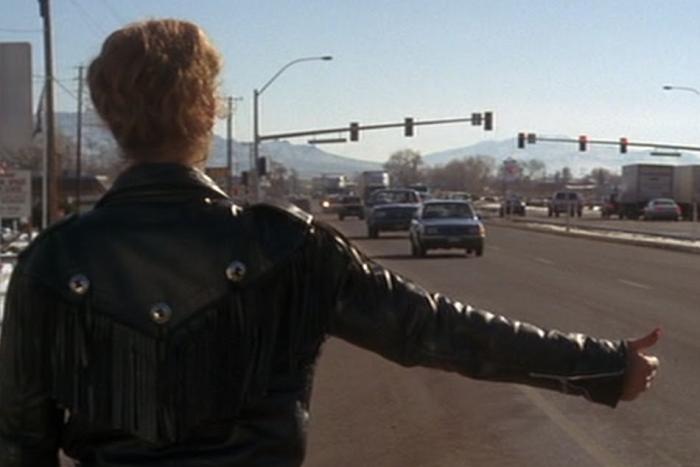Consider a situation: a number of people walk into a restaurant at the same time. The server attends to all the white customers. The last customer served happens to be the only person of colour. Is this racism?
What about something more general: how would you describe the portrayal of African Americans in the US entertainment media? Is there racism there?
It’s long been understood that how you respond to these kinds of questions is heavily influenced by the colour of your skin. Numerous studies have shown that people from the dominant racial group perceive far less racism in mainstream society than people from subordinate racial groups. The real question is: who is seeing things as they really are?
It’s an ugly argument, one that flares up daily on television and in bars everywhere. When a court finds a man innocent of shooting an unarmed black teenager, is it systemic racism, or just a case of the facts on the ground being difficult to prove in court? When Kanye West goes on Jimmy Kimmel, ranting about how the fashion world looks at him, a black man, like he’s crazy, is he being a celebrity baby, or is he on to something? Is the dominant group simply blind to prejudice, or are minorities oversensitive, too eager to hold onto past grievances and play the race card in this quickly improving society?
In a study published in Psychological Science last year, researchers at the University of Kansas and Texas A&M set out to test what they call the “Marley Hypothesis.” The theory is that minorities may perceive current racism differently because they have more accurate knowledge about the racism of the past. The dominant group, in contrast, may deny racism because they’re ignorant of history. The thesis is more or less an academic attempt to test the assertion of “Buffalo Soldier” by Bob Marley: “If you know your history/then you will know where you’re comin’ from/and you wouldn’t have to ask me/who the heck do I think I am.”
For the study, psychologists found European-American students from a predominantly white university in the Midwest and African-American students from two historically black universities. Both groups were given a history test in which they had to judge whether plausible statements about past racism were true or false. For example: “The F.B.I. [Federal Bureau of Investigation] has employed illegal techniques (e.g., hidden microphones in motels) in an attempt to discredit African American political leaders during the civil rights movement.” (True.) Or: “African American Paul Ferguson was shot outside of his Alabama home for trying to integrate professional football.” (False.)
The groups also took a survey created to measure how they perceived present-day racism. They read scenarios that were about individuals (the waiter who serves the black person last) and all of society (the treatment of African-Americans in the media), and used a scale of 1 to 7 to indicate to what extent each situation described a case of racism.
When the results were tallied, the researchers found that African American students were far more accurate about picking out historical facts about racism without showing any tendency raise false alarms about fabricated events. They were nearly three times better at the test than European Americans. African-American students were also far more likely to see a given situation as racist than white students.
Most interestingly, white students were least likely to see prejudice when it came to examples of systemic racism rather than individual prejudice. The sense was that, while one specific server might be a bigot, mainstream society as a whole was doing OK.
It’s easy to see the way that ignorance here goes beyond a simple lack of knowledge and seems to veer towards mainstream historical denial. Systematic racism—the kind of large-scale prejudice that implicates entire societies—is far more difficult to contend with than the work of a few bad apples. Like the Canadian tendency to forget that this country ever had a history of slavery or that Japanese-Canadians were thrown into internment camps just a few generations ago, collective ignorance begins to feel like a convenient strategy. As the researchers argue, systemic racism is “more difficult to quarantine from one’s self-image than are isolated incidents of racism.” As a society, it’s easier, more advantageous, to simply not know. And not knowing makes you far more likely to see present-day society as an imperfect, but more or less equitable place.
Of course, the current study doesn’t prove that differing historical knowledge about documented racism is the ultimate reason people have different perceptions of present-day racism. It just shows a strong correlation. But as the authors politely suggest, if attunement to undisputed historical facts comes with a greater sense of present-day racism, then perhaps the next time we have an argument about whether or not something is racist, the burden of proof should rest with the deniers. Show me someone who sees the world as a post-racial utopia—a society where minorities simply need to move on and stop harping on perceived slights—and I’ll show you someone who is, quite simply, demonstrably ignorant.
Studies Show runs every Thursday.






